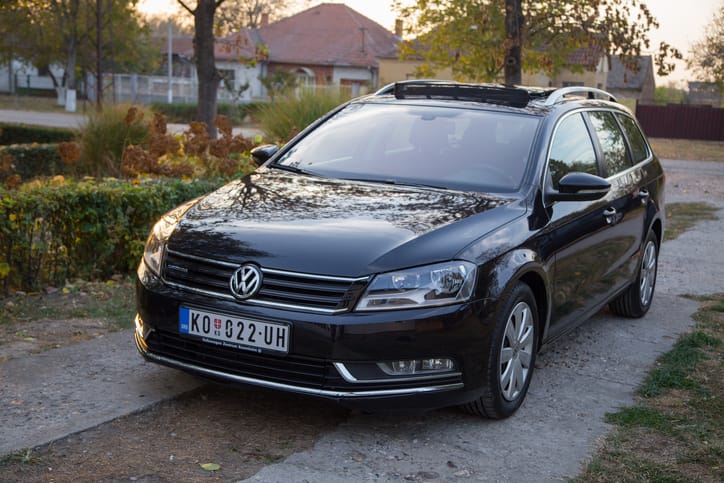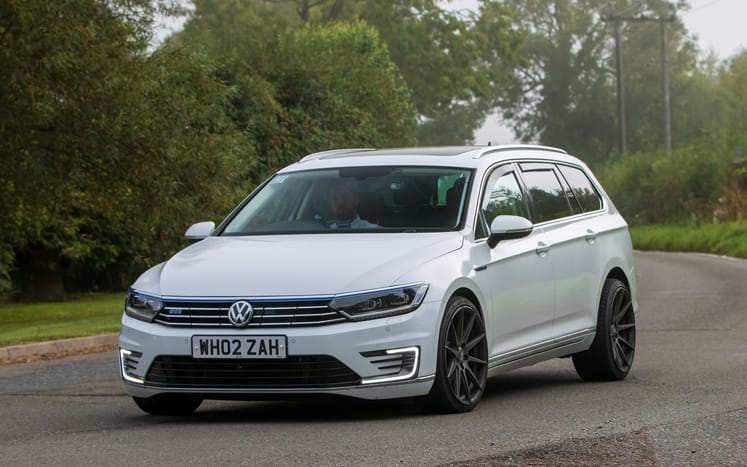The Volkswagen Passat: A Legacy of Family Car Excellence

The Volkswagen Passat is a name synonymous with reliability, functionality, and a touch of European flair. Introduced in 1973, this mid-size sedan has carved a niche for itself in the ever-competitive family car market, going through nine iterations and earning a loyal following worldwide. This article delves into the rich history of the Passat, explores its features and specifications, and analyzes its place in the contemporary automotive landscape.
A Storied Past: From Dasher to Passat
The Passat's roots can be traced back to the 1970s with the introduction of the Audi 80. This car, also marketed by Volkswagen as the Dasher in North America, laid the foundation for what would become the Passat. The Passat name officially debuted in 1973 in Europe, offering a more spacious and powerful alternative to the compact Beetle. Over the next few decades, the Passat evolved through various generations, adapting to changing consumer preferences and technological advancements.
The 1980s saw the Passat establish itself as a solid family car option. The B2 and B3 generations offered increased interior space, improved fuel efficiency, and a more refined driving experience. The 1990s brought further refinement with the B4 and B5 generations, which introduced features like a wagon body style and a VR6 engine option.

The early 2000s marked a turning point for the Passat. The B5.5 generation introduced a more modern design language and a focus on safety features. The subsequent B6 generation solidified this shift, offering a luxurious interior and a range of powerful engines. The Passat CC, a four-door coupe variant, debuted in 2008, catering to a more style-conscious market segment.
The arrival of the eighth generation (B8) in 2014 marked a significant change. Volkswagen discontinued the Passat in North America due to declining sales, focusing on the more popular SUV market. However, the Passat remained a strong seller in Europe and other regions. The current ninth generation (B9), introduced in 2019, offered a refreshed design and a renewed focus on technology.

Passat Today: Features and Specifications
While the Passat no longer graces American showrooms, it remains a relevant option in many markets. The current iteration offers a balance of comfort, performance, and technology. Here's a closer look at some key features and specifications:
- Engine and Transmission: The Passat comes with a single engine option in most markets: a 2.0-liter turbocharged four-cylinder producing 174 horsepower. This engine is paired with a smooth-shifting six-speed automatic transmission. While not a powerhouse, it provides adequate power for everyday driving.

- Interior Design and Comfort: The Passat's interior is known for its well-thought-out design, high-quality materials, and comfortable seating. The cabin offers ample space for five passengers and their cargo. The ergonomics are excellent, with all controls placed within easy reach.

- Technology and Safety Features: The Passat comes loaded with technology features, including a touchscreen infotainment system with Apple CarPlay and Android Auto compatibility, a digital driver's instrument cluster (on higher trims), and a suite of driver-assistance features like forward collision warning, automatic emergency braking, and blind-spot monitoring.

Standing Out in a Crowded Market
The mid-size sedan segment is fiercely competitive, with established players like the Honda Accord, Toyota Camry, and Hyundai Sonata vying for market share. So, how does the Passat hold its own?
Volkswagen has traditionally positioned the Passat as a more European alternative to its Japanese and American rivals. It offers a more engaging driving experience with its precise handling and firm suspension. Additionally, the Passat boasts a reputation for German engineering and build quality, which resonates with some buyers.

However, the Passat's discontinuation in North America and the growing popularity of SUVs pose challenges. Since many car buyers prioritize space and versatility, the Passat's traditional sedan format might be less appealing.
Looking Forward: The Future of the Passat
Despite the challenges, the Passat remains a relevant player in the global automotive market. Volkswagen is likely to continue refining the Passat, focusing on fuel efficiency, technology integration, and driver assistance features. The possibility of a hybrid or electric Passat variant cannot be ruled out either, as the industry continues its shift towards electrification.
In conclusion, the Volkswagen Passat boasts a rich history of innovation and adaptation. It has carved a niche as a reliable, comfortable, and European-inspired family car. While its future in North America remains uncertain, the Passat is likely to continue its journey as a global success story, evolving to meet the needs of drivers worldwide.
